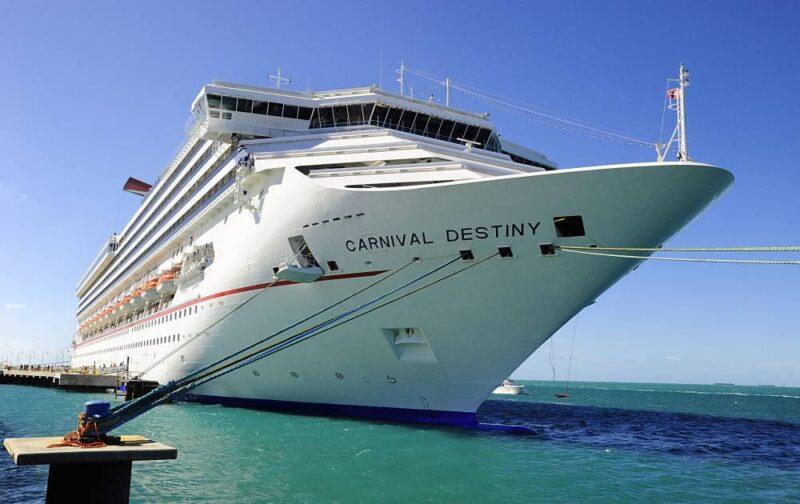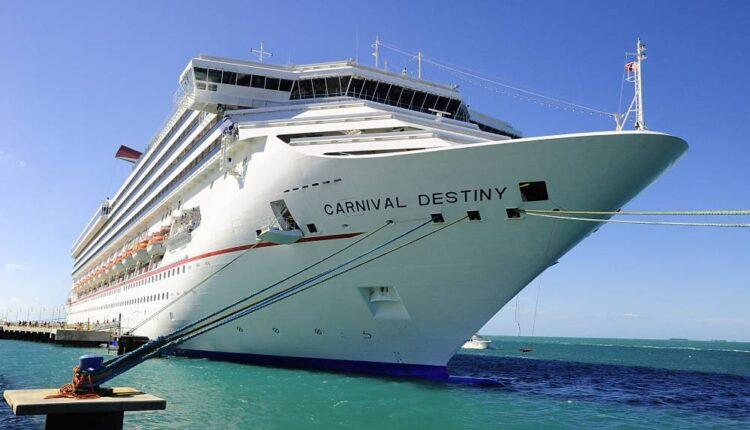
- "I think it's incredible that there's still an appetite for risky debt here, and that could make a huge difference for an ultimate economic comeback," CNBC's Jim Cramer said.
- The difference between the "coronavirus recession" and the Great Recession is "[t]his time the companies that really need money can actually get it. This time there's no financial crisis, at least not yet," the "Mad Money" host said.
- "Even genuinely troubled companies can raise capital here, a good sign for the economy, at least for now," he said.
VIDEO2:3002:30Jim Cramer: What Carnival's capital-raising moves say about the economyMad Money with Jim Cramer
CNBC's Jim Cramer on Tuesday said one hobbled cruise liner's ability to attract buyers in both the stock and debt markets is a telling sign about the state of the economy compared to a decade ago.
With the leisure industry under enormous pressure from the global coronavirus pandemic, Carnival Corp. saw its shares jump 33% in the last two trading days on news Monday that Saudi Arabia took an 8% stake in the cruise line and that the company closed on a public offering of tens of millions of common stock.
The company also announced billions worth of bond deals.
"I think it's incredible that there's still an appetite for risky debt here, and that could make a huge difference for an ultimate economic comeback," the "Mad Money" host said about the transactions, "assuming the markets don't freeze up again."
Cramer pointed out a big contrast in the underlying causes of the current economic downturn, which he called a "coronavirus recession," and the last recession.
The economic downturn of the late 2000s, the worst since the Great Depression of the 1930s, was triggered by a financial breakdown. That's not the case this time around.
"This time the companies that really need money can actually get it. This time there's no financial crisis, at least not yet," Cramer said. "If you remember, during the bad ole days a dozen years ago, there was very little money to be had, especially for the banks."
The comments come on the same day that stock in one hobbled cruise liner buoyed almost 11% after the company managed to attract interest from the Saudi sovereign wealth fund.
The Saudi sovereign wealth fund revealed that it bought 43.5 million shares of the American cruise company. Additionally, Carnival sold 71.88 million shares at a price of $8.
Carnival had lost 85% of its market value from its $51.90 peak close in mid-January to its lowest close of $7.97 last Thursday. The company, along with the rest of the business world, is scrambling to respond to the economic impact of the unexpected shutdowns that were ordered to slow the spread of the deadly virus. Furthermore, consumer demand for cruises evaporated after passengers fell ill on ships at the onset of the outbreak, which began in China.
Carnival also said it sold nearly $2 billion worth of senior notes with a 5.75% coupon and expects to close on another $4 billion in senior notes with a 11.5% coupon, both due in 2023. In the case a company goes into bankruptcy, the senior notes, or bonds, are prioritized for payback.
"That's quite a haul considering that they can't do business," Cramer said. "Even genuinely troubled companies can raise capital here, a good sign for the economy, at least for now."
VIDEO3:5003:50Jim Cramer: What Carnival's capital-raising moves say about the economyMad Money with Jim Cramer
Questions for Cramer?
Call Cramer: 1-800-743-CNBC
Want to take a deep dive into Cramer's world? Hit him up!
Mad Money Twitter – Jim Cramer Twitter – Facebook – Instagram
Questions, comments, suggestions for the "Mad Money" website? madcap@cnbc.com
Source: cnbc.com

